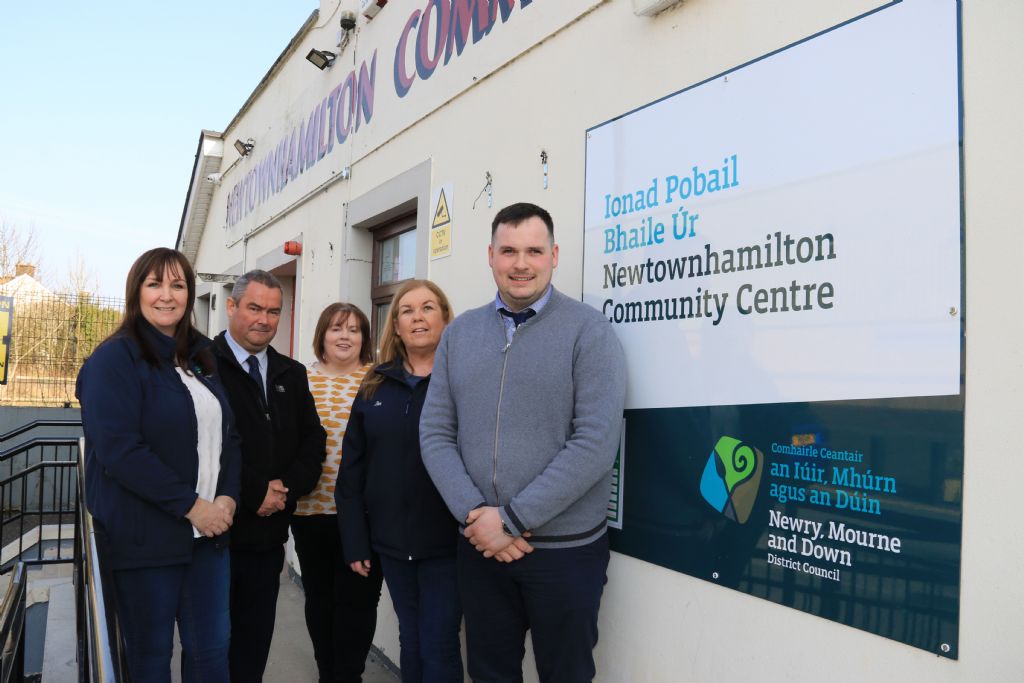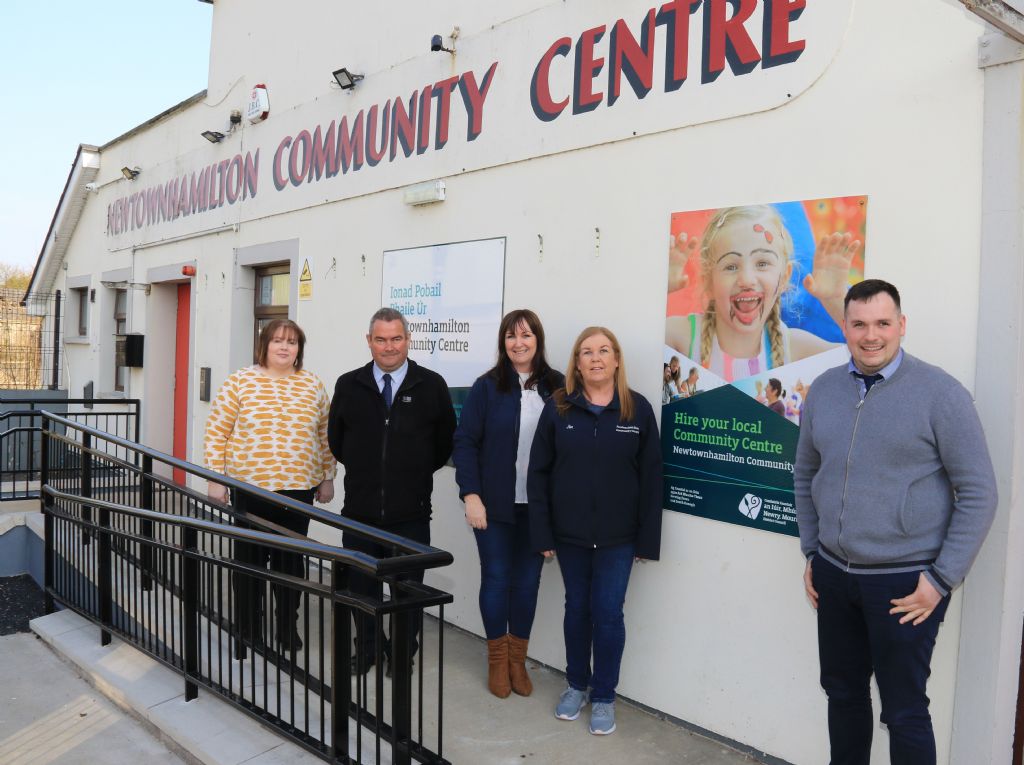PEACE IV Reimaging and Regeneration Programme Launches in Newtownhamilton
As a delivery partner on the PEACE IV Programme, Newry, Mourne and Down Policing and Community Safety Partnership (PCSP) are implementing Reimaging and Regeneration projects in 10 areas across the district. These projects are supported by the European Union’s PEACE IV Programme, managed by the Special EU Programmes Body (SEUPB).
Newtownhamilton area is one of the first to develop their Reimaging and Regeneration Programme. Its main objective is the creation of a more cohesive society through an increased provision of shared spaces and services at a grass roots level. This involves the local residents taking ownership of how they can maximise the usage of shared spaces within their communities and help engage more people through the removal of psychological barriers.
Attending the launch of Newtownhamilton’s Reimaging and Regeneration Programme, Newry, Mourne and Down PEACE IV Partnership Chairperson, Councillor Terry Andrews said, “This programme will provide cross community contact opportunities to help build capacity within disengaged communities, which will lead to the creation of a shared vision and the removal of psychological barriers in local neighbourhoods. I am delighted that in total 10 communities across our district can access this programme as it will offer children and adults an opportunity to create and develop relationships and build self-esteem. Some programmes will provide a means to revitalise a disenfranchised community, and some will offer people a place to express themselves through a visual means.”
Ita Gibney, Chairperson of Newtownhamilton Community Association said, “For a long time Newtownhamilton has been overshadowed by the history of the troubles, however the community of Newtownhamilton has always been strong, we work together in order to make our village the lovely, welcoming place it is today. We are very grateful to the PEACE IV Programme as this project will create additional opportunities for us to engage further with the local community through activities, workshops and study visits, which we otherwise would not have the resources to do.”
Match-funding for the project has been provided by the Executive Office in Northern Ireland and the Department of Rural and Community Development in Ireland.
Back










